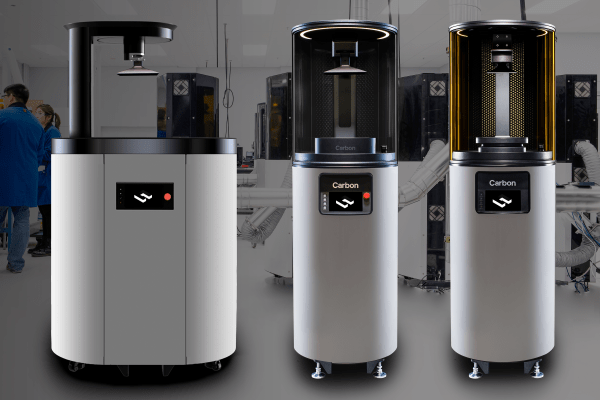It’s hard to get a much better poster child for your 3D printing company than Futurecraft 4D. Adidas’s line of custom 3D sneakers are all you really need to know when it comes to 3D printing’s potential as a manufacturing powerhouse. Bay Area-based Carbon has been bringing that technology to life courtesy of its proprietary Digital Light Synthesis technology, which is able to print out at a much more rapid clip than traditional methods.
This morning, the company announced that the first closing in a $200 million Series D, courtesy of a mix of investors, including Fidelity, General Electric and Hydra Ventures, Adidas’s somewhat ominously named investment arm.
“What’s quite clear is we have momentum with a lot of customers,” Carbon co-founder and CEO Joseph DeSimone said on a call with TechCrunch this week. “This idea of 3D manufacturing is coming to bear. We’re making millions of pairs of shoes with [Adidas], and as we do that, we’re learning a lot about what it takes to manufacture […] This is going to allow us to really step on the gas and support our customers, both in the US and outside.”
The Adidas deal is far and away the most public facing of Carbon’s current applications. The Futurecraft line is starting off small at 5,000 pairs in its initial run, but things are ramping up quickly, demonstrating the technology’s scalability over more traditional 3D printing technologies like FDM.
DeSimone says the companies plan to be printing out shoes in the “hundreds of thousands of pairs” next year. That number could jump to the millions in 2019, aided by a relatively small number of the company’s machines. This latest, massive round of funding (which will bring the company’s total up to $420 million), will be used to expand the technology’s footprint into other categories like consumer electronics, medical and dental, which has already proven a popular application for the technology.
“We’ve invented something fundamentally different that has the ability to scale,” says DeSimone. “It’s really taken off because of the progress our customers have made.”
3D printing has been a long sought after technology for manufacturing, for its ability to create unique, customized products. Unlike its desktop counterpart, which has stagnated somewhat in recent years, additive manufacturing is still very much a focus for many investors.
But the tech has long had issues with speed and scalability. Carbon’s success have been relatively modest on these fronts, but are impressive nonetheless. And a big injection of funding could be what the tech really needs to accelerate.
